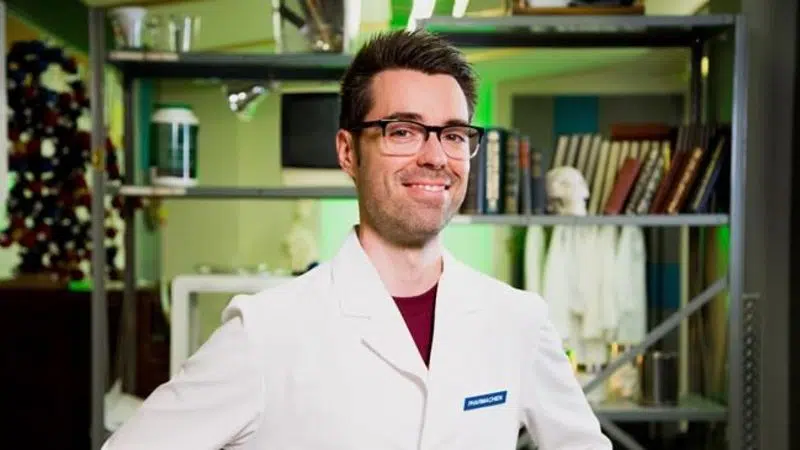
‘The Pharmafist’: Quebec pharmacist wins international award for defending science
A Quebec pharmacist and blogger who takes on junk science with cartoons, a sense of fun and a no-nonsense attitude has won a prestigious international prize for science communication.
Olivier Bernard, also known as “The Pharmafist,” was awarded the John Maddox Prize on Tuesday for his work in debunking myths around the use of vitamin C to treat cancer.
“It’s important to defend science, to stand up to those kind of threats,” Bernard said from London, where he was picking up the award given by the journal Nature and the group Sense About Science.
Bernard, 38, has done pharmaceutical research and has been a working pharmacist since 2004. It was that experience that pushed him into science communication.
